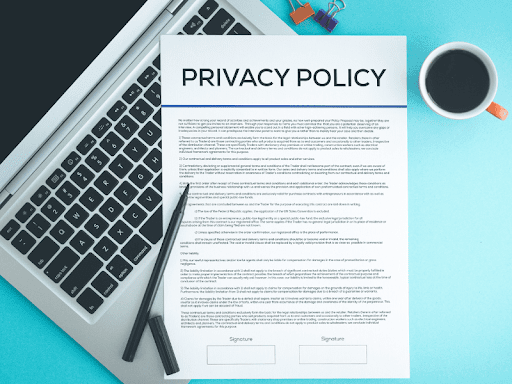Data Collection and Consent: Understanding Online Privacy Policies
Taking steps to protect your privacy has never been more important than it is right now. Whether you’re using a dedicated computer or a mobile phone, there’s a very good chance that your online activity is being tracked and your data is being collected. Many of us grant consent for data collection without even realizing it; it’s baked into most online privacy policy agreements.
Sometimes, however, websites and social media platforms violate their own data collection policy terms. Sometimes they overreach and collect or store data in a way that is unlawful. In these and other such cases, the best way to hold companies accountable is to take them to court via a class action lawsuit. Kiesel Law can help you expose corporate wrongdoing to the general public, while also gaining you compensation for any damages you’ve suffered.
Although violations can occur regardless of whether or not one provides consent for data collection, it’s nevertheless important to know your rights and understand your options. Below, we’ll break down how a standard online privacy policy works while also providing tips for how you can protect yourself from unwanted data collection.
Understanding Online Data Collection
To put it simply, online data collection is the process by which websites and online services gather information about their users. This information can be anything from your name and email address to your browsing habits and device details. Here’s how it typically works:
Data Collection Points
- User Input: When you sign up for an account, make a purchase, or fill out a contact form, you willingly provide personal information.
- Cookies: Websites often use cookies, which are small text files stored on your device. Cookies can track your browsing history, preferences, and more.
- Device Information: Websites may collect data about your device, such as your IP address, operating system, and browser type.
- Third-Party Sources: Some websites obtain data from third-party sources, like social media platforms or data brokers, to enhance user profiles.
Data Use
- Personalization: Websites use collected data to tailor your experience. For instance, they may suggest products based on your past purchases.
- Analytics: Data helps websites understand user behavior, improve content, and optimize site performance.
- Advertising: Many websites rely on targeted advertising, using your data to display ads that align with your interests.
- Third-Party Sharing: Some websites share data with third parties, like advertisers or analytics providers, for various purposes.
Data Storage
Websites store collected data on their servers, often following strict security protocols to protect your information from breaches and unauthorized access.

How to Read an Online Privacy Policy
To gain insights into a website’s privacy practices, its data collection policy is your go-to resource. Here’s what to look for when reading these policies:
Data Collection Scope
- What Data is Collected: The privacy policy should specify the types of data collected, such as personal information, browsing history, or device details.
- Why Data is Collected: Understand the purpose behind data collection, whether it’s for improving user experience, analytics, or marketing.
Third-Party Sharing
- Disclosure of Third Parties: Check if the website shares your data with third parties and who these parties are.
- Purpose of Sharing: Understand why data is shared with third parties, whether it’s for advertising, analytics, or other purposes.
Cookie Usage
Cookie Information: Find out how the website uses cookies and tracking technologies. Look for options to manage or disable cookies in your browser settings.
Consent Mechanisms
Opt-In and Opt-Out: Many websites use opt-in mechanisms for data collection, requiring users to actively agree to it. You should also have the option to opt out or withdraw your consent at any time.
Data Retention
How Long Data is Stored: Privacy policies should state how long your data is retained by the website. Some retain it for specific periods, while others keep it indefinitely.
Access and Correction
User Rights: Check if the privacy policy grants you rights to access, correct, or delete your data. Many privacy laws provide these rights to users.
Updates to Privacy Policy
Notification of Changes: Ensure the privacy policy outlines how users will be notified of changes to data collection practices and how such changes are handled.
Contact Information
Contacting the Website: Look for contact information or a dedicated support channel to reach out to the website if you have questions or concerns regarding your data.

Withdrawing Consent for Data Collection
If you’re concerned about data collection practices or wish to protect your privacy further, here’s how you can withdraw your consent for data collection:
Opt-Out Mechanisms
Cookies: Many websites provide options for managing cookies in your browser settings. You can often choose to block or limit the use of cookies.
Privacy Settings
Account Settings: If you have an account on the website, check for privacy settings. These settings may allow you to customize data collection preferences.
Contact the Website
Reach Out: Use the contact information provided in the privacy policy to contact the website. Express your desire to withdraw consent for data collection or inquire about data deletion.
Unsubscribe from Marketing
Marketing Communications: If you want to stop receiving marketing emails or communications, use the provided opt-out mechanisms in these messages.
Use Privacy Tools
Browser Extensions: Consider using privacy-focused browser extensions or tools that can help you control and protect your online data.
Exercise Legal Rights
Data Protection Laws: Depending on your location, you may have legal rights under data protection laws, such as the right to access, rectify, or delete your data. You can contact the website to exercise these rights.
Seek Compensation for Online Privacy Policy Violations
If you find the process of untangling a website data collection policy difficult, you’re not alone. Some companies intentionally make their online privacy policy terms obtuse in order to obtain your consent for data collection. Despite what you may have been led to believe, though, you’re not powerless in controlling your private data. By following the tips outlined above, you can safeguard yourself from unwanted data collection.
Even still, if you have found yourself damaged by data collection overreach or an online data breach, you may be entitled to compensation. The attorneys at Kiesel Law can help evaluate your case and determine the best course of action. Contact us today to learn more.


